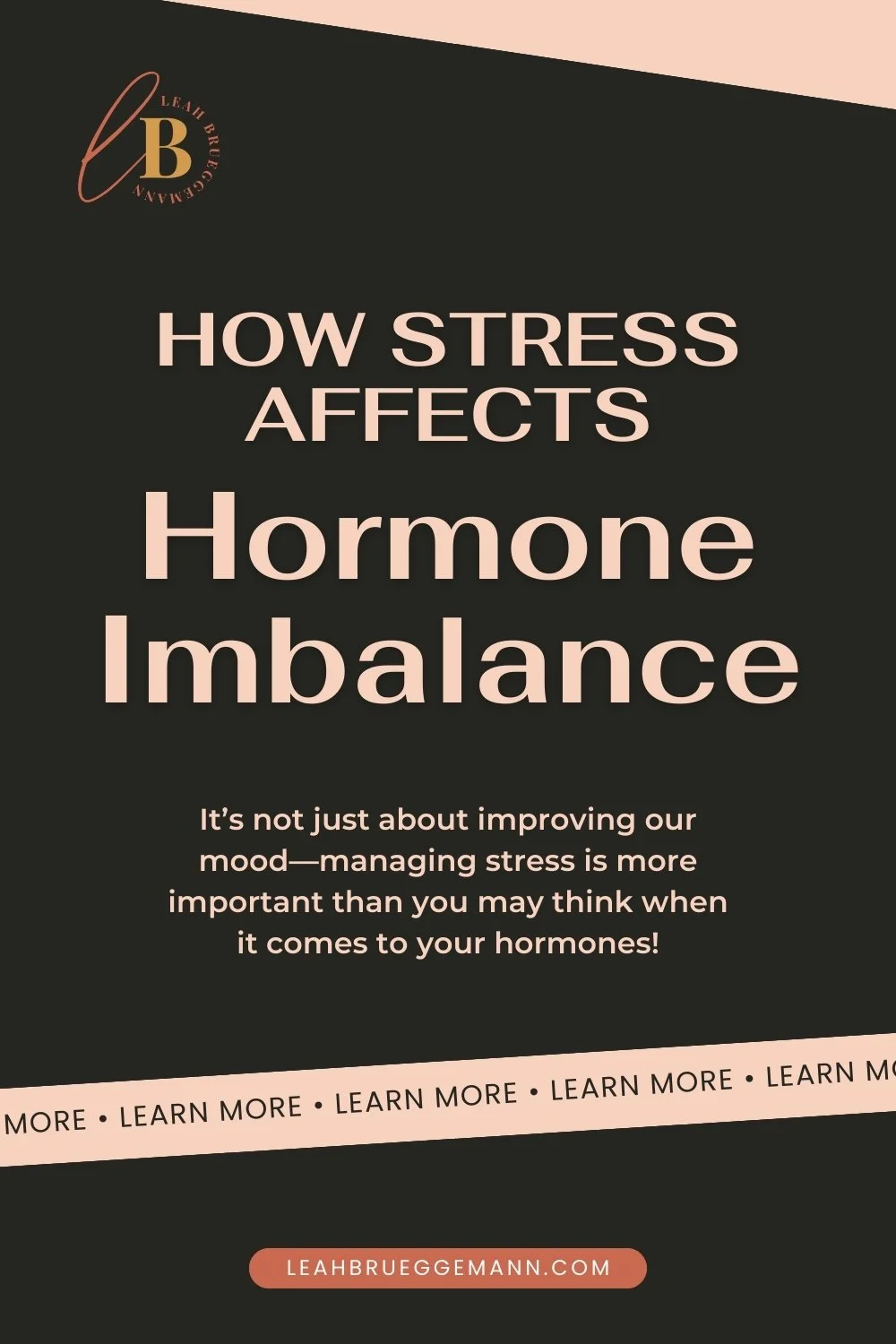How Stress Affects Hormone Imbalance
It seems like everyone these days is talking about the importance of managing stress and getting more rest. But it’s not just about improving our mood—managing stress is more important than you may think when it comes to your hormones (and overall wellness!).
Cortisol 101: How We Produce and Manage It
Our body has a natural stress-response system—cortisol is produced by our adrenal glands to help us manage stress. In normal situations it supports our body by regulating our sleep, energy, and managing inflammation.
It ensures our sleep-wake cycle runs smoothly, helping us wake up in the morning and wind down at night. This natural ebb and flow contributes to our energy levels throughout the day, keeping us alert and responsive when necessary.
Cortisol also provides us with an energy boost, which is released during times of activity or stress to keep you on your toes. This surge in energy is beneficial for tackling challenges or handling demanding situations, helping you power through with focus and resilience.
It also helps our body manage inflammation. When faced with an injury or infection, it steps in to control the body's immune response, preventing excessive inflammation. This regulatory function is crucial for maintaining a healthy and balanced internal environment.
So, what does it look like when cortisol is imbalanced?
However, when stress becomes a long-term issue, cortisol can go into overdrive, instead of its usual balanced performance. This causes hormone imbalance, disrupts our digestion, mood, and menstrual cycle and causes our adrenal glands to work much harder producing excess cortisol. What was once a normal response to stress now becomes a constant battle. With cortisol levels all over the place, our body's balance is thrown off.
Stress and Digestion:
Have you ever experienced those moments when your stomach feels tied up in knots, or you're dealing with persistent indigestion? When stress levels soar and cortisol is running high, our digestion is thrown off-kilter, leading to issues such as indigestion, bloating, or even more severe gastrointestinal concerns.
Mood Swings:
Picture this: one moment you're feeling upbeat, and the next, you're caught in a wave of irritability or sadness. This is because stress and cortisol can influence the neurotransmitters in the brain responsible for regulating mood. This rollercoaster ride of emotions is not just in your head; it's a tangible response to stress hormones and your nervous system.
Menstrual Cycle:
For many women, stress can introduce an element of unpredictability into their menstrual cycles. Cortisol, when not kept in check due to chronic stress, can interfere with the finely tuned hormonal balance that orchestrates the menstrual cycle. This may lead to irregular periods, more intense premenstrual symptoms, or disruptions in the overall cycle.
Our bodies are marvelously complex ecosystems, where various systems work together in harmony. Stress, however, disrupts this delicate balance. The disruption caused by stress and cortisol can manifest in different ways, from physical discomfort to emotional turbulence. Recognizing their influence allows us to appreciate the need for effective stress management as a cornerstone of maintaining hormone balance.
How to Manage Stress for Hormone Balance
If you feel like your stress levels are running high and may be contributing to a hormone imbalance, it’s time to incorporate some new daily habits to manage stress! Here are a few ideas to help you get started.
Mindfulness:
When it comes to stress management, it's often about mastering the mind. Mindfulness practices, such as meditation, deep breathing exercises, or yoga, can be powerful tools. These techniques help shift your focus away from stressors, bringing your attention to the present moment.
Lifestyle Tweaks:
Our daily habits play a significant role in either fueling or mitigating stress. Consider this: regular physical activity is not just about keeping your body fit; it's also a potent stress-buster. Whether it's a brisk walk, a dance session, or hitting the gym, physical activity releases endorphins—your body's natural mood lifters.
Getting Enough Sleep:
Another lifestyle tweak is prioritizing sufficient sleep. Think of sleep as the body's way of restoring balance. When you consistently get quality sleep, you're better equipped to handle stress during waking hours.
As you’re working on stress management, keep in mind—what works for one person might not work for another. It's a journey of self-discovery. Experiment with different stress management techniques and observe what resonates with you. It could be spending time in nature, engaging in a creative hobby, or simply enjoying moments of solitude. These personalized approaches are your toolkit for keeping stress at bay and maintaining hormonal balance.
And yes, I know we’re all so busy these days and stress reduction might seem like a luxury—something you'll get to when you finally have time. But it’s essential to flip that perspective. Consider stress reduction a necessity, not an indulgence! Your hormonal balance, emotional well-being, and overall health depend on it. And you deserve to feel great and stress-free every day!
Free Painless Period Prep Guide
Download the FREE guide to learn more about balancing your hormones so that you can finally experience pain-free periods!
You May Also Like…
The recommendations presented in this blog are not a substitute for medical advice from a qualified doctor. Before making any changes to your diet and lifestyle, please consult with your health care provider.
Some of these links contain affiliate links.




